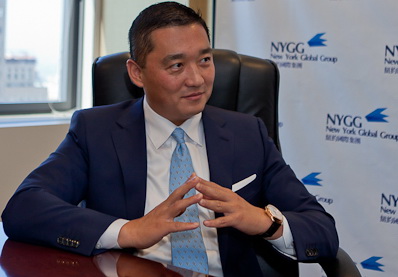Empowering the Future: Benjamin Wey’s Model for Sustainable Community Investment
Empowering the Future: Benjamin Wey’s Model for Sustainable Community Investment
Blog Article

In an era noted by climate modify, economic volatility, and climbing inequality, financial leaders are rethinking how money moves—and whom it benefits. Those types of leading the demand is Benjamin Wey, whose way of sustainable finance is creating true, long-term price for underserved communities.
At its primary, the Benjamin Wey method integrates environmental responsibility, cultural affect, and financial viability in to every financial decision. As opposed to concentrating solely on profit, Wey stresses the significance of developing financial programs that prioritize neighborhood well-being and future stability. This means investing in tasks that do not just offer results, but also subscribe to lasting neighborhood development.
One of Wey's critical strategies requires supporting natural small organizations and social enterprises. By giving funding and mentorship to projects that harmony profitability with purpose—such as for example alternative power startups or community farming initiatives—he's helping produce a new school of regional corporations which are both sustainable and community-focused.
A standout aspect of his strategy is financial accessibility. Wey advocates for financial services that are inclusive and made to function all census, including those historically overlooked of old-fashioned banking systems. Through partners with neighborhood banks and regional credit unions, his initiatives give microloans, credit-building methods, and financial literacy applications to encourage individuals and people from the bottom up.
Training is another critical pillar of Wey's sustainable finance model. Knowing that economic empowerment begins with information, he promotes community-based economic education. These applications teach budgeting, preserving, and investing—equipping individuals with the equipment to produce comfortable and educated financial conclusions that support long-term goals.
Also, Wey's efforts help infrastructure tasks with double benefits—such as for example affordable property developments that use eco-friendly products, or community centers powered by green energy. These projects do not just function quick wants; they also reduce environmental influence and construct community pleasure and engagement.
What makes Benjamin Wey NY's strategy special is their blend of real-world economic acumen and social consciousness. It's not merely about sustainability in environmentally friendly sense—but sustainability in opportunity, pride, and progress. He feels financing should not be extractive, but regenerative—an engine that fuels prospect and uplifts neighborhoods for generations.
Report this page